Luis Martinez: It’s OK to feel lost. Find your community and thrive
Berkeley staffer, alumnus shares his story as a nontraditional undergrad, and gives advice for students new to campus: 'Don't be afraid to ask questions.'
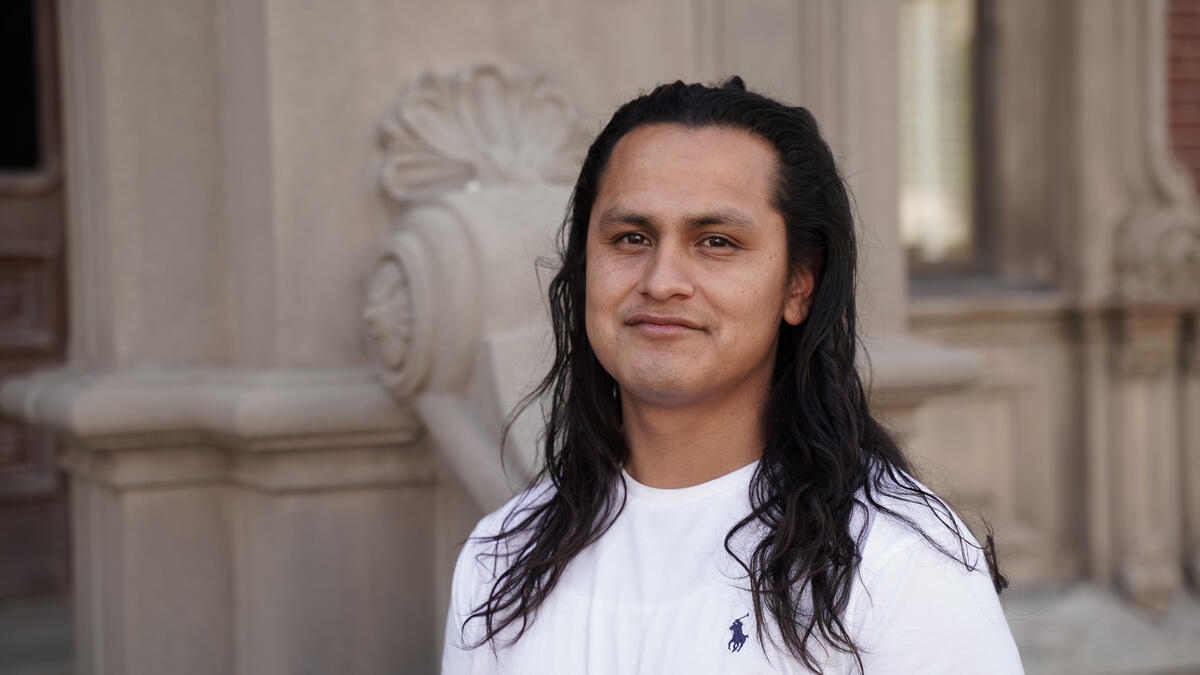
Courtesy of UC Berkeley’s Centers for Educational Equity and Excellence
August 24, 2023
This I’m a Berkeleyan was written as a first-person narrative from an interview with alumnus Luis Ramirez Martinez, media production coordinator and social media strategist at UC Berkeley’s Centers for Educational Equity and Excellence.
“Whether you think you can or you can’t, … you’re absolutely right.”
Those are words of advice from my middle school wrestling coach that I have taken as motivation throughout my life and my journey as a UC Berkeley student, alumnus and now staff member.
It’s a reminder for me that when things get hard, you can only persevere if you believe you can.
As I see new students coming to campus this semester, I realize it was just a few years ago when that was me: a first-generation Latino re-entry transfer student wandering around campus, at times feeling completely lost and unsure of how to navigate the rigors of such a big institution.
Being older and formerly incarcerated, it was also hard for me to relate to other undergraduates. But I would eventually find my people — my community — on campus through the resources provided by Berkeley’s Centers for Educational Equity and Excellence (CE3).
From the Re-entry Student Program, Transfer Student Center and Underground Scholars, those communities uplifted me and allowed me to thrive.
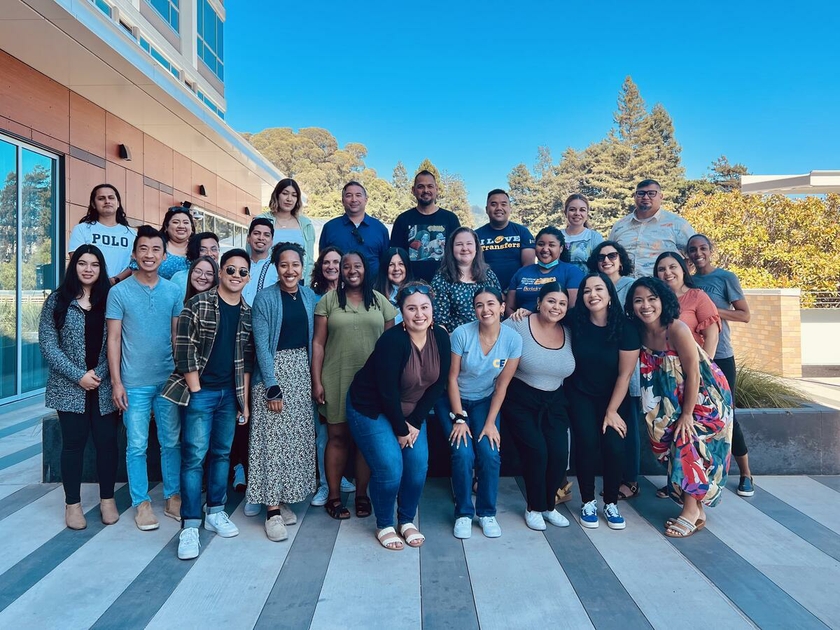
Courtesy of UC Berkeley’s Centers for Educational Equity and Excellence
And now as the media production coordinator and social media strategist for CE3, through digital storytelling my goal is to connect students on campus with the resources these communities can give them. But that can be difficult, because oftentimes students are afraid to seek that help, or think they don’t deserve it.
Berkeley students come from different backgrounds and have taken unique journeys to get to where they are, and those stories deserve to be told — especially for our underrepresented students. Sharing those stories can help new students find the support and community they need here to feel at home.
My story starts in Mexico, where I was born. Our family lived in a little pueblo in Oaxaca. When I was five, we immigrated to California’s Central Valley. My father worked in the fields picking peaches and strawberries as a farmworker. My mother cleaned homes to support the family as well. We moved around a lot, following different jobs to different cities in the area, but eventually we ended up in San Jose — the Bay Area — a place I still know like the back of my own hand.
Growing up was sometimes challenging because, although my parents worked hard to provide everything that my siblings and I needed, they weren’t at home much. My parents also didn’t have an education past the fifth grade, so I didn’t have guidance about school the same way other kids did.
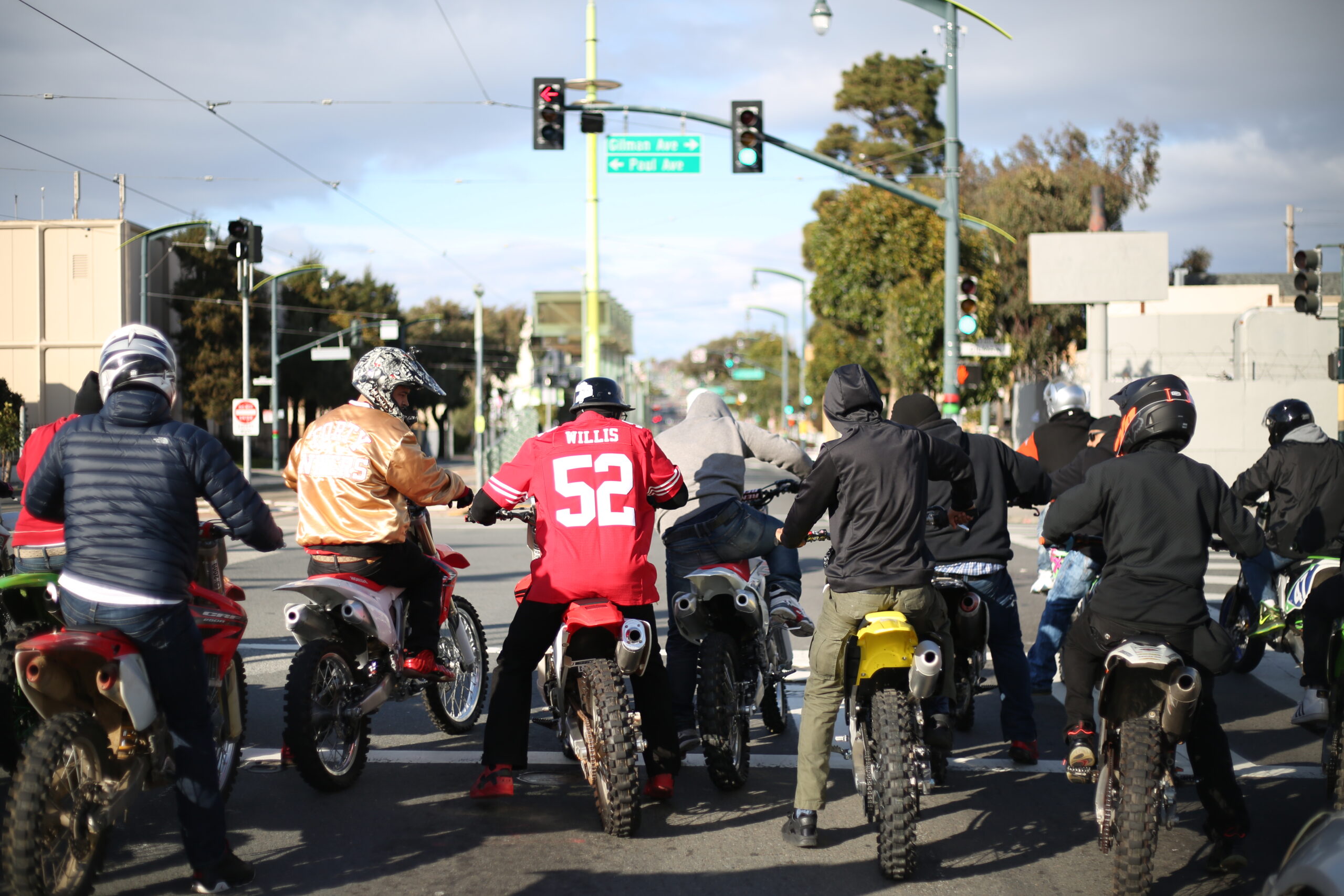
Courtesy of Luis Martinez
Instead of taking the next steps to continue my education, I was running around recklessly. I’d hang out with the older homies around the neighborhood and attend San Jose bike parties where we would party into the late night.
For me, riding a fixie and attending these parties gave me a sense of freedom and community — a family away from home.
Being out and about all of the time, I was not really too worried about my academics. When senior year came, and people were talking about what they were doing after graduation and this and that college, I didn’t have much to say.
I tried community college but I didn’t know how to navigate higher education or the opportunities that came with it. So, I felt like, “Why even bother?” I stopped going to school, and I moved out on my own. But I wasn’t happy and didn’t know what I wanted to do with my life.
That uncertainty led to bad decisions.
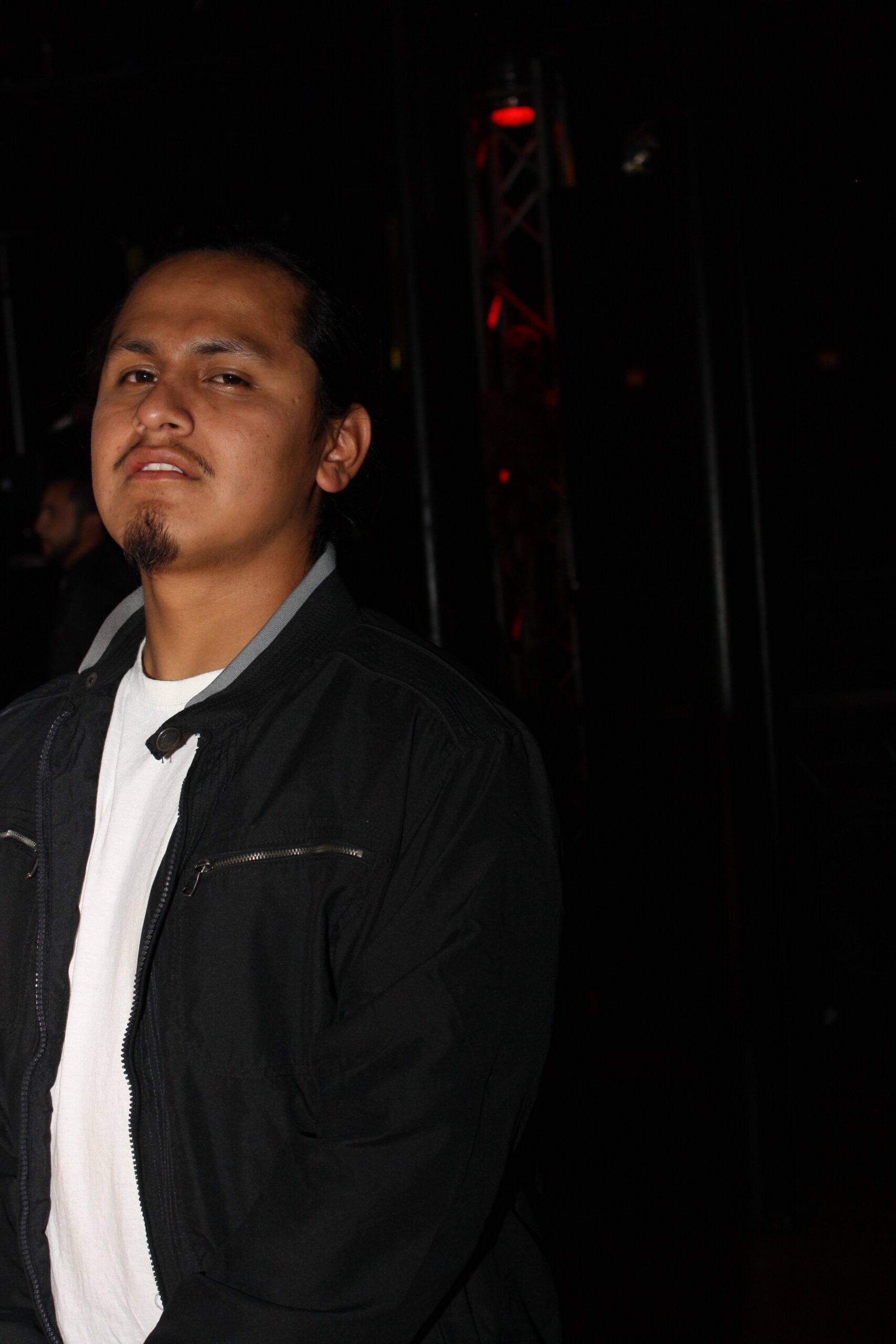
Courtesy of Luis Martinez
After a friend introduced me to undercover agents, I was investigated for nine months on potential drug charges and eventually was convicted of 14 felonies and sentenced to four years.
Sitting in jail, I would think about the mistakes I made. I realized I had this great opportunity — to go to college — that my parents had worked so hard for, and I messed it all up.
My approach to life wasn’t working. I needed to change.
I started to get to know inmates that were much older than me. Some of these guys were really cool. We talked and hung out, and they’d give me advice about how to survive inside. But I noticed that a lot of them would get released one day, and weeks later they’d be right back in jail.
I didn’t want that lifestyle. I didn’t want to belong to the system. So I began to think about the things I loved to do and how I could turn those things into a career when I would get out.
I’ve always had a passion for the arts and music. I remembered when I was little I used to wake up early in the morning before school just to watch MTV’s “Making the Video.” It was a reality TV show where you get to go behind the scenes to see how those videos are produced. I was intrigued by the creation process of it all.
To be able to take an idea and to tell a story from your mind and bring it to life visually was fascinating to me. I would use my little sister’s DSLR camera and attend local hip-hop and rap shows where I eventually began networking with different Bay Area artists.
I loved it.

Luis Martinez
When I got out on probation in the summer of 2015, I picked up photography again. I wanted to make a business out of this skill and passion. So I essentially took my camera and started going back out to a lot of concerts around the Bay Area. I got noticed by professionals in the industry, and I started to build a network for myself to get more gigs. I also helped sustain content on a local hip hop website called Thizzler.
I was a part of their marketing team and covered concerts in the Bay Area by artists like E-40, Kool John and Philthy Rich. I got so skilled at it that artists would contact me directly to do photoshoots to promote on social media and mixtape and album covers.

Luis Martinez
I also went back to community college in San Jose to take courses in Adobe tools, like Premiere and Photoshop, and learned all of these skills that helped me develop as a photographer. Freelancing as a photographer helped me pay my bills and tuition for school. And I was even asked to do video shoots to help promote enrollment for certain courses on campus.
At San Jose City College, I got acclimated with people that wanted to see me succeed, like my English professor, Javier Chapa, a Berkeley alumnus, who planted the initial seeds of interest for me to attend Cal.
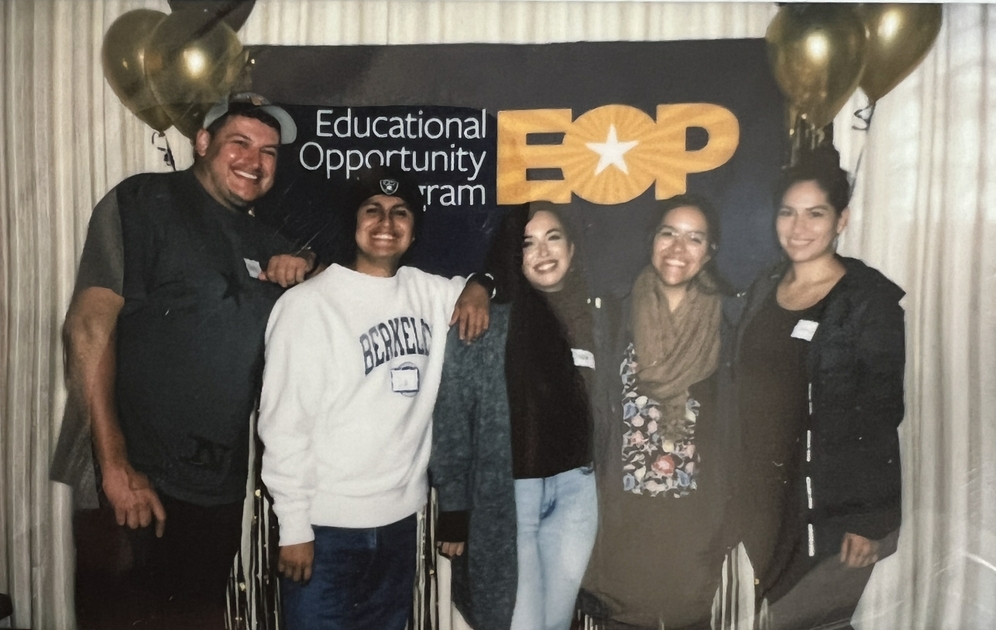
Courtesy of Luis Martinez
After receiving an associate degree in film and media, I applied to Berkeley and got in. In spring 2018, I moved into the area and was pretty excited. There were a lot of fun activities on campus, and people welcoming you and saying nice things that made me feel like I could do this.
But I definitely wasn’t ready for the rigor of the academics. I went to my first class, and as soon as one of the teachers said something, like literally everyone busted out their iPad and just started typing away.
And I was just like, “Whoa, this is a different level.”
I also love speaking Spanish with other Spanish-speakers when I get the chance. It’s just my way of getting involved with my community. And I noticed there weren’t as many Latino folks on campus as I was used to seeing in other parts of the Bay.
On top of that, going to Berkeley as someone with 14 felonies was a terrifying thing because I was coming from a completely different world. I knew I had an opportunity to better myself, but those first two semesters, I was lost.
Going to Berkeley as someone with 14 felonies was a terrifying thing because I was coming from a completely different world.
I didn’t know what to do, and I was even scared to go to the Cal front desk to get my student I.D. It was Berkeley, and it was intimidating. I didn’t know about any of the groups or resources that could help me at the time. I felt like I was failing.
At times I wanted to give up.
But I started to remember everything I had been through — being in jail and all the changes I had made in my life. And the work I had put into my photography and academics to get here. I thought about the sacrifices my parents made and how hard they worked to give me this opportunity.
And most of all, I remembered how resourceful I had been throughout all of that. I figured out how to navigate my way into Berkeley through my community.
I needed to succeed here.
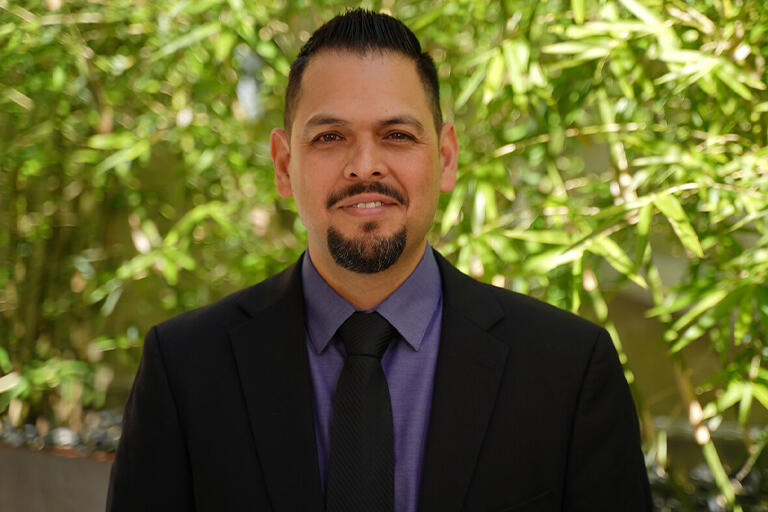
Courtesy of UC Berkeley’s Centers for Educational Equity and Excellence
A counselor I knew, who understood what I was going through, introduced me to Julian Ledesma, the executive director of Berkeley’s CE3 program. And I showed them examples of my digital media work. They hired me as a student intern to help fill the content gaps in their social media campaigns.
Through that internship, I got connected with all of these CE3 groups that, as a new student on campus, I didn’t know existed. I started to attend events and meetings for everything they offered, from the Re-entry Student Program, which gave me a space to study and socialize with other students to the Transfer Student Center, Basic Needs Center and Educational Opportunity Program that gave me the resources to acclimate to campus better.
Being a part of NavCal helped me navigate financial aid, scholarships, research opportunities and class scheduling. I was also able to meet other formerly incarcerated students that were a part of Underground Scholars.
These different communities gave me the guidance that I needed to thrive at Berkeley and beyond. They are spaces with good people who are just fun to be around, and they made me feel welcome.
They still do.
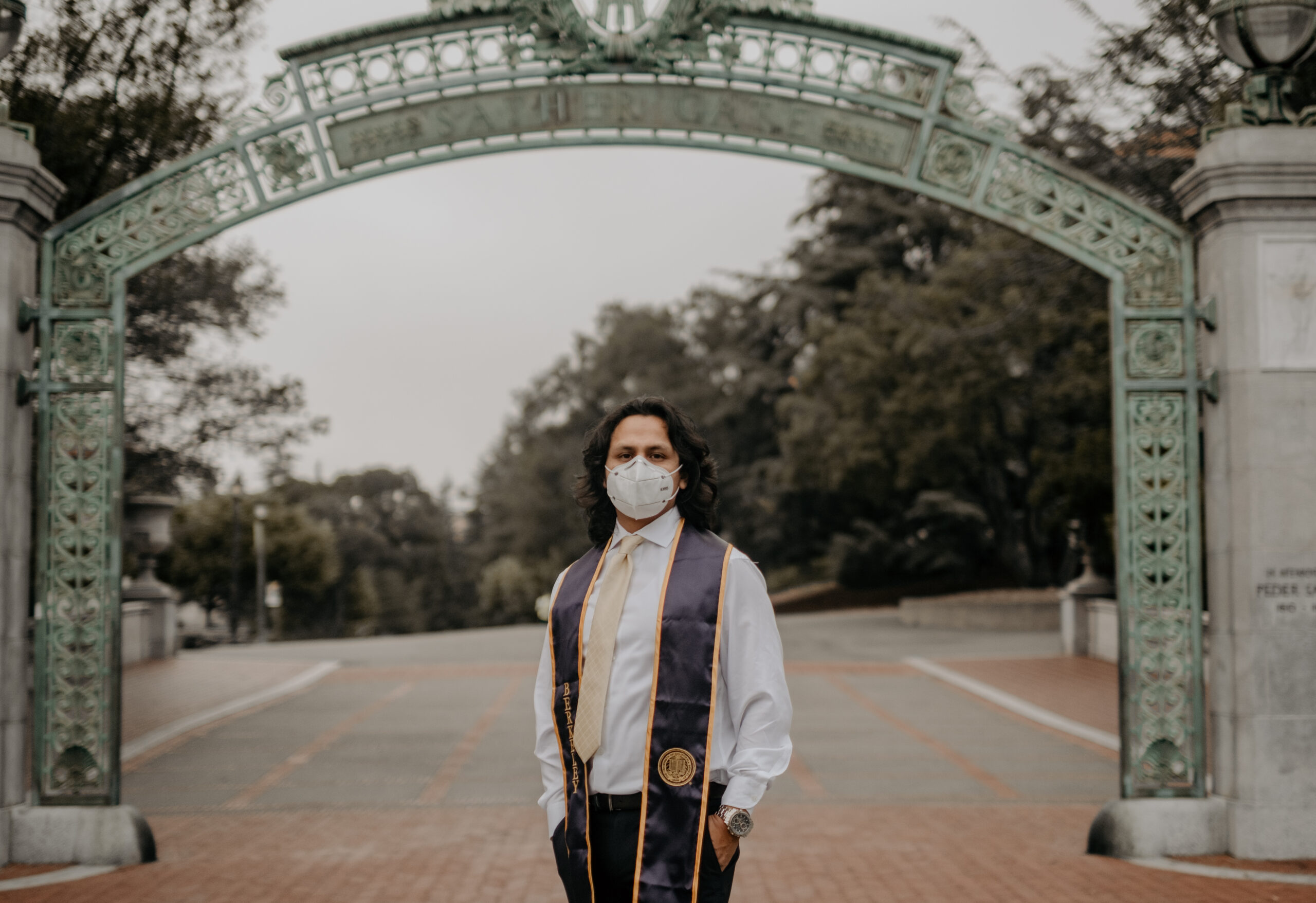
Courtesy of Luis Martinez
Now, as a leader for CE3’s storytelling and social media strategy, I want to bridge that gap that some students may still have when it comes to understanding all of these campus programs they have at their disposal.
We need to bring visibility to these resources and initiatives so students can find their community the second they step foot on campus. We have to meet students where they’re at — on their phones.
As we move into a future that requires you to be connected, I think it’s important that our students can reach us, and it’s about being accessible. It was accessibility that allowed me to thrive as a student.
Some students might struggle with asking for support and resources in physical spaces, or in sending emails. So, providing a digital space for them to directly message us on social media is a great tool to let students know what the university has to offer.
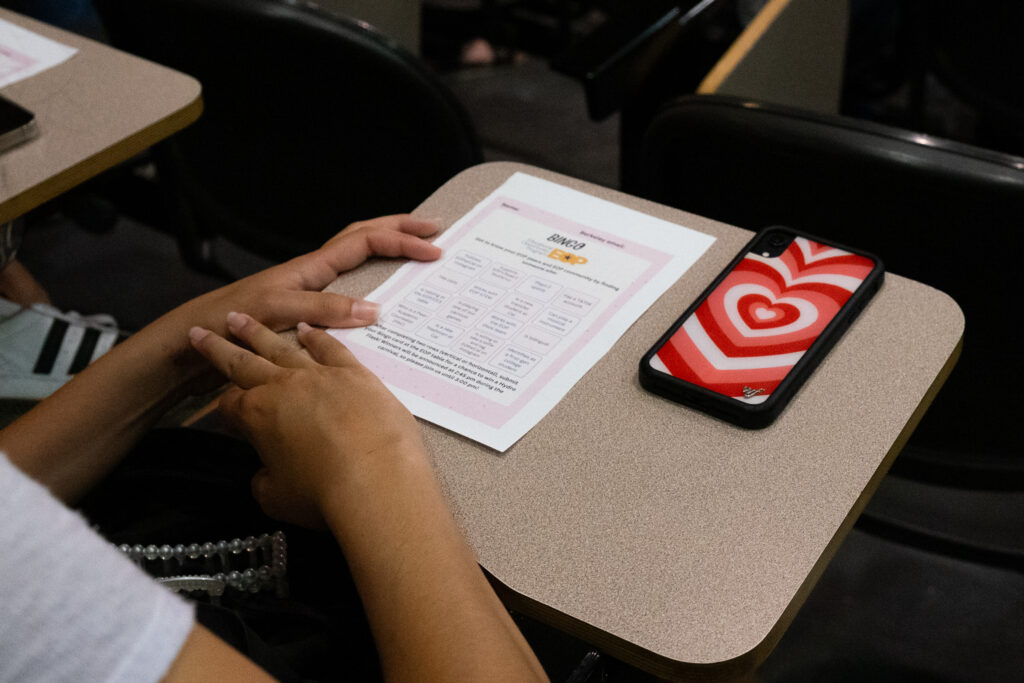
Sofia Liashcheva/UC Berkeley
In sharing my story, it feels like a full circle moment for me. I hope students can understand that it’s normal to feel lost at Berkeley. But that’s no reason to give up. There is support and resources here that can help you with any challenges or barriers you are experiencing.
So get involved as soon as you come to campus. Look for your community, and don’t be afraid to ask questions.
And remember, whether you think you can, or you can’t… you’re absolutely right.
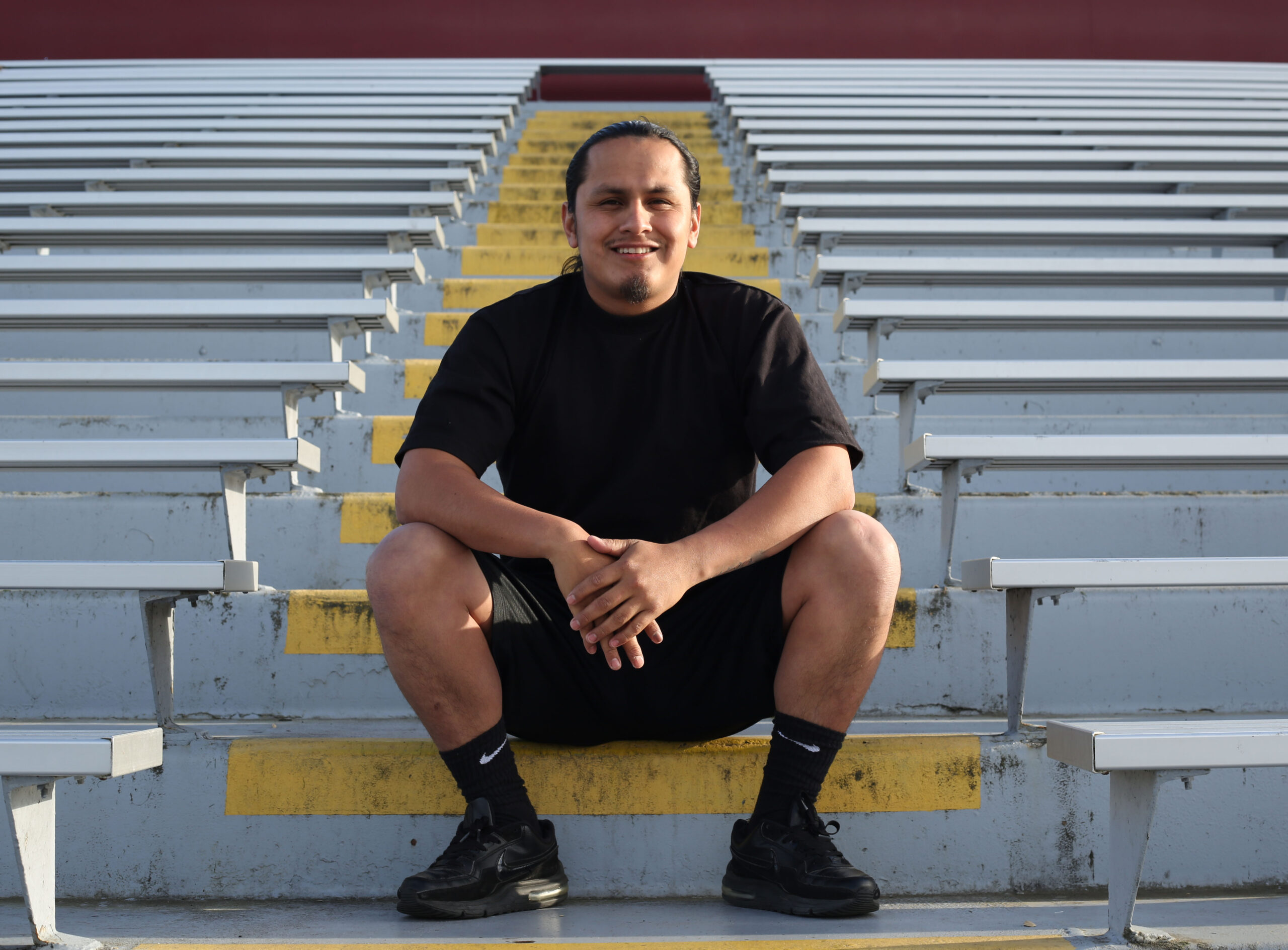
Courtesy of Luis Martinez